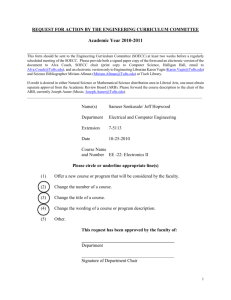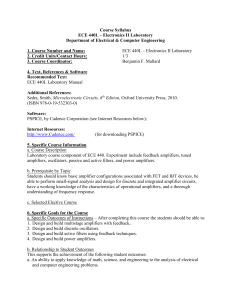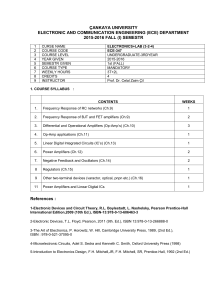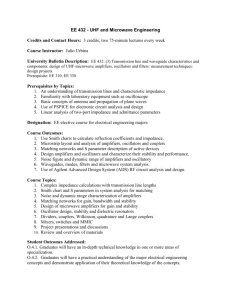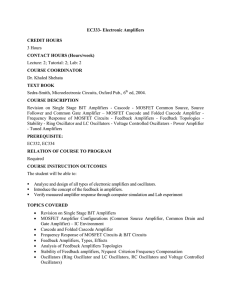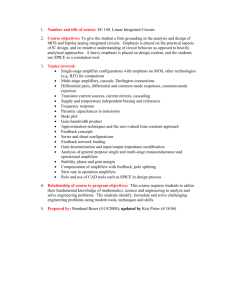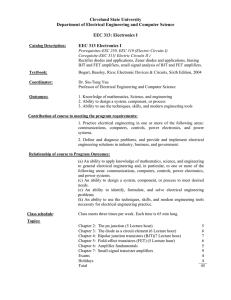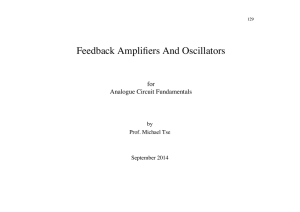Course Number: EE 303 Course Title: Electronics II (Required
advertisement
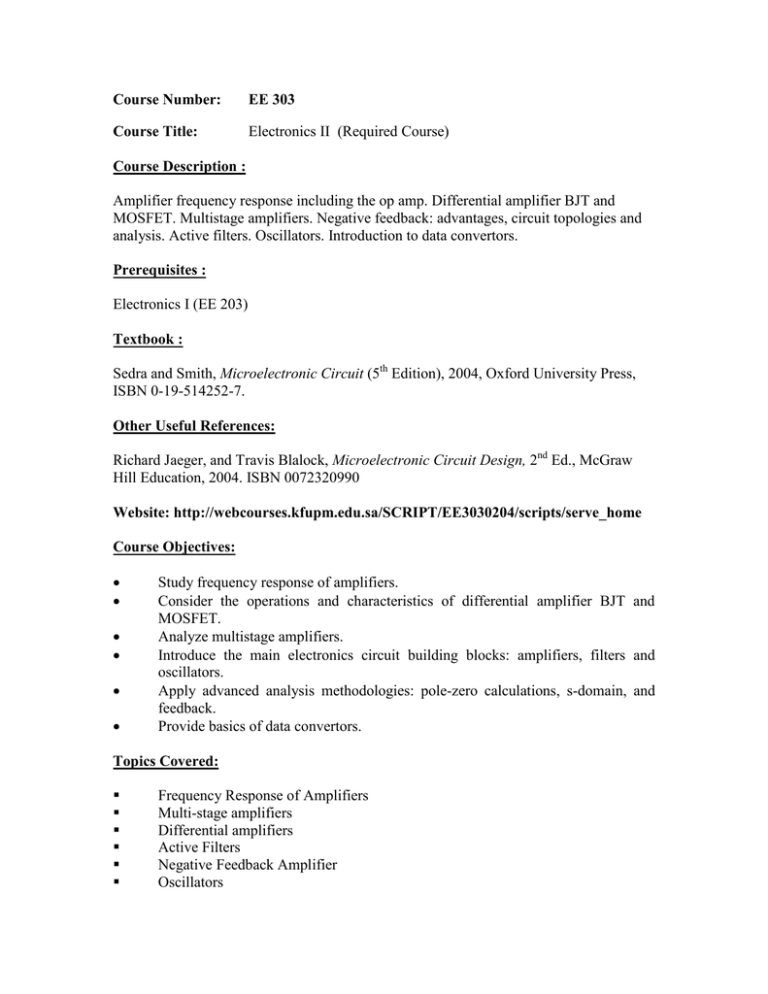
Course Number: EE 303 Course Title: Electronics II (Required Course) Course Description : Amplifier frequency response including the op amp. Differential amplifier BJT and MOSFET. Multistage amplifiers. Negative feedback: advantages, circuit topologies and analysis. Active filters. Oscillators. Introduction to data convertors. Prerequisites : Electronics I (EE 203) Textbook : Sedra and Smith, Microelectronic Circuit (5th Edition), 2004, Oxford University Press, ISBN 0-19-514252-7. Other Useful References: Richard Jaeger, and Travis Blalock, Microelectronic Circuit Design, 2nd Ed., McGraw Hill Education, 2004. ISBN 0072320990 Website: http://webcourses.kfupm.edu.sa/SCRIPT/EE3030204/scripts/serve_home Course Objectives: • • • • • • Study frequency response of amplifiers. Consider the operations and characteristics of differential amplifier BJT and MOSFET. Analyze multistage amplifiers. Introduce the main electronics circuit building blocks: amplifiers, filters and oscillators. Apply advanced analysis methodologies: pole-zero calculations, s-domain, and feedback. Provide basics of data convertors. Topics Covered: Frequency Response of Amplifiers Multi-stage amplifiers Differential amplifiers Active Filters Negative Feedback Amplifier Oscillators Fundamentals of data convertors. Class Schedule: 3 lectures per week, 50 minutes each and 3 hours lab per week. Contribution of course to meeting the professional component: This course provides the engineering science foundation in the area of electronics at device levels using both mathematics and basic sciences (Physics) to characterize the performance of electronics building blocks. Important electronic circuits that have wide real applications (Amplifiers, Active Filters, and Oscillators) are considered. The course emphasizes the use of CAD tools such as SPICE to perform the frequency analysis of different circuits (Amplifiers, Active Filters, and Oscillators). The course project is designed to strengthen spirit of team work. Course Outcomes : U 1. An ability to apply knowledge of mathematics, science, and engineering to the analysis of electronic circuits (Amplifiers Active Filters, and Oscillators). 2. An ability to use the techniques, skills, and modern engineering tools such as PSPICE to analysis and design electronic circuits. 3. An ability to conduct experiments, as well as to analyze and interpret data. 4. An ability to apply knowledge of mathematics, science, and engineering to the design of electronic circuits (such as Amplifiers, Active Filters, and Oscillators). 5. An ability to identify, formulates, and solves electronic engineering problems. 6. An ability to design a electronic components or process to meet desired needs within realistic constraints such as economic, environmental, social political, ethical, health and safety, manufacturability and sustainability Course Outcomes to Program Outcome Mapping: U Course Outcome 1 2 3 4 5 6 a X b c d Program Outcome e f g h i X k X X X X X j X X l m
